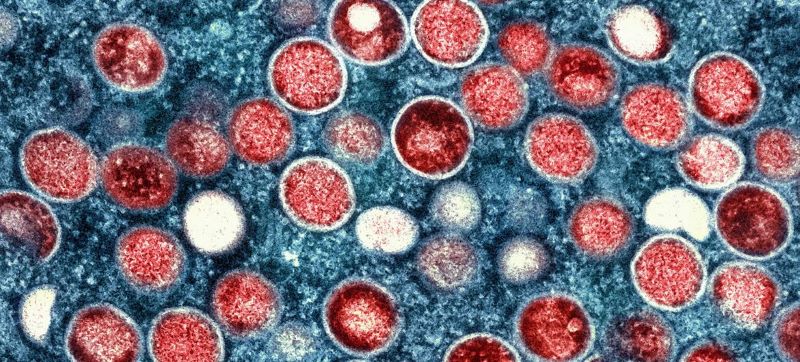 mpox
mpox
Sweden reords first mpox case,WHO backs African efforts to combat disease
The World Health Organization (WHO) is supporting African countries to scale up response to curb mpox, which is now an international global health emergency.
The outbreak that affected the Democratic Republic of the Congo (DRC) and spread to neighbouring countries continues to grow.
On Thursday afternoon, WHO member Sweden became the first country outside Africa to record a case of the mpox Clade 1 variant that is believed to be driving the latest outbreak.
“We are hard at work on the frontlines of the response, collaborating closely with governments and communities to strengthen mpox control measures and are ramping up efforts to curb the widening trend of the virus through coordinated action with partners and national authorities,” said Dr. Matshidiso Moeti, WHO Regional Director for Africa.
Viral disease, global concern
Mpox – formerly monkeypox - is a viral disease that can be transmitted through physical contact with an infected person, animal or contaminated objects.
It was first detected in humans in 1970, in the DRC, and is considered endemic to countries in Central and West Africa.
Outbreaks are caused by different mpox viruses called clades, and the clade 1 strain has been circulating in the DRC for years.
The emergence of a new offshoot – clade 1b - and its rapid spread, including to nearby countries, is among the main reasons why WHO declared on Wednesday that mpox constitutes a public health emergency of international concern (PHEIC).
So far this year, more than 2,100 laboratory confirmed cases of the disease, and 13 deaths, have been reported in the DRC and 11 other countries: Burundi, Cameroon, Central African Republic, Congo, Côte d'Ivoire, Kenya, Liberia, Nigeria, Rwanda, South Africa and Uganda.
This compares to 1,145 confirmed cases, and seven deaths, in 11 countries for all of 2023.
Support and collaboration
WHO is stepping up support to the affected countries by deploying additional experts, including epidemiologists and anthropologists, and providing initial funding to accelerate outbreak response measures.
Efforts are underway to enhance cross-border collaboration for case investigation, contact tracing and community engagement to ensure compliance with preventive measures.
The UN agency is also assisting national regulatory authorities to speed up regulatory approvals, as well as providing guidance to national immunization technical advisory groups to ensure readiness for vaccine rollout.
Improving access to vaccines
WHO has also begun the process for Emergency Use Listing (EUL) for mpox vaccines, which will accelerate access for lower-income countries which have not yet issued their own national regulatory approval.
EUL means that partners such as Gavi, the Vaccine Alliance, and the UN Children’s Fund (UNICEF) will be able to procure doses for distribution.
WHO is also working to strengthen national diagnostic capacities by providing testing kits, and reagents, as well as machines to decentralize testing. Genomic sequencing is also ongoing to determine the mpox clades.
To enhance preparedness in countries neighbouring the DRC and those at risk, disease surveillance and training of frontline health workers is being increased, along with public awareness campaigns.
Support Our Journalism
We cannot do without you.. your contribution supports unbiased journalism
IBNS is not driven by any ism- not wokeism, not racism, not skewed secularism, not hyper right-wing or left liberal ideals, nor by any hardline religious beliefs or hyper nationalism. We want to serve you good old objective news, as they are. We do not judge or preach. We let people decide for themselves. We only try to present factual and well-sourced news.







